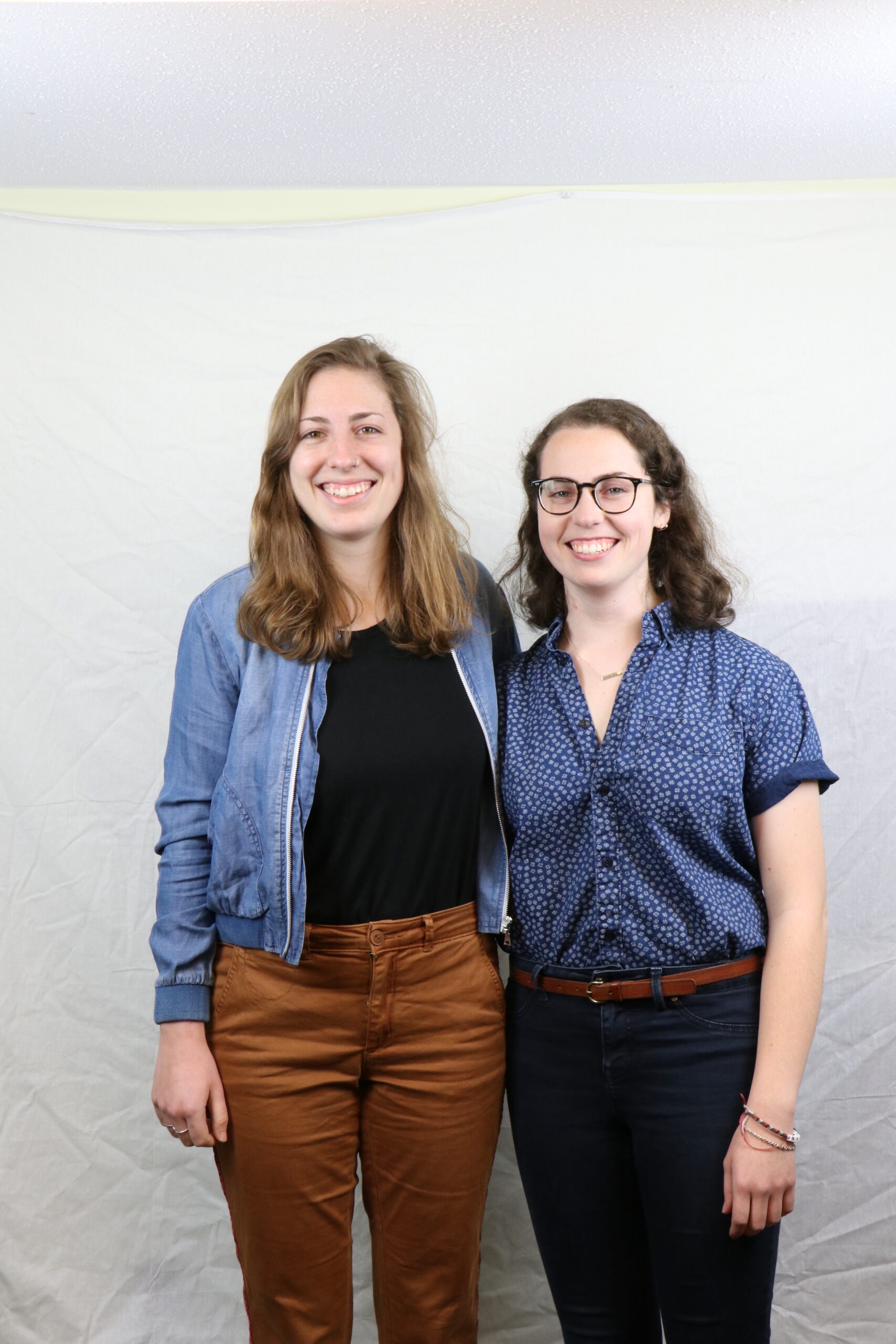‘In Stitches’ highlights rise of vernac comedy in South Africa
November 30, 2018

On Wednesday night, two Bowdoin alumni returned to campus with a unique story rooted in the language of humor as a tool for decolonization and rewriting histories. Hannah Rafkin ’17 and Meg Robbins ’17 screened their documentary “In Stitches” and answered questions from students, faculty and community members.
“In Stitches” is the pair’s first film. Both English majors at Bowdoin, Rafkin and Robbins directed and produced the documentary that centers on three South African comics, whose use of native South African languages has set them apart from the country’s more commercially successful comedians who perform exclusively in English.
South Africa has eleven official languages, and 60 percent of its citizens do not understand English. From this need arose the genre of vernacular comedy, which encompasses all comedy performed in a South African language other than English.
Rafkin and Robbins became particularly interested in comedy while studying abroad in Cape Town together. During their time abroad, protests over university fees and elitism erupted around them. The use of comedy to cope with tragedy and heal pain was particularly fascinating to the pair.
“When we were there, we saw a lot of stand-up comedy,” said Rafkin. “We were really interested in how the comedy and protests were interlinked.”
A number of the comedians in the film noted that, for both themselves and their audiences, comedy was an outlet for the difficult emotions that accompanied years of oppression and political turmoil.
After returning from their semester abroad, Rafkin and Robbins ached to go back to South Africa. “We had been talking about how [we could] get back to South Africa. We want[ed] to do something meaningful,” said Rafkin.
As they began to formulate a project that would take them back, the pair enrolled in an independent study on comedy with Visiting Assistant Professor of Anthropology April Strickland and began conducting research that would lead to “In Stitches.”
“We knew we were interested in comedy in South Africa, [but] we didn’t have any specific ideas,” said Robbins. “We talked to a bunch of comics … We asked them what the most exciting thing was in the [comedy] scene, and they were all like, ‘Vernac is up and coming and really something to watch out for.’ We couldn’t find anything about it online.”
After a process of crowd-funding, grant applications and networking, Rafkin and Robbins eventually spent 10 months in South Africa attending comedy shows, interviewing comedians and learning about the social and political climate from which vernac comedy emerged.
Many South Africans doubted the success of vernac, considering its viewership is limited by language. Yet for many comedians, vernac is not an attempt to gain fame but a chance to give back to their communities and participate in decolonization efforts.
Apartheid schools taught black South Africans in their native languages and denied them access to English, a key tool in politics, business and other professional careers.
“There’s a history of mother-tongues being this contradictory thing of pride and culture, but also something that has been used to keep [black South Africans] down and from achieving success,” said Robbins.
Vernac reclaims the pride of these mother-tongues through stories and jokes that audiences find relatable.
“That was one of the best parts, watching it with South African audiences and comics and seeing them be like, ‘Yeah, that’s how I feel, that’s my story, I relate to that,’” said Rafkin.
For American audiences, some jokes may not make sense due to cultural and linguistic differences, but the filmmakers want viewers to embrace that discomfort.
“We want you to understand what it feels like to be totally in the dark and see how you can still look for value in something you’re not being hand-held through,” Robbins said.
Meg Robbins and Hannah Rafkin are former members of the Bowdoin Orient.

Comments
Before submitting a comment, please review our comment policy. Some key points from the policy: